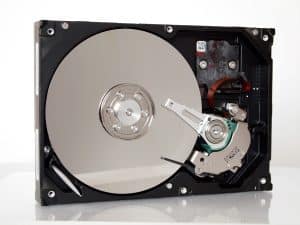Smart Contracts Revolution: The Future of Legal Agreements
The traditional process of legal agreements is known to be time-consuming, complicated, and sometimes prone to errors. However, with the advancement of technology, the legal industry is now embracing the concept of smart contracts. Smart contracts have revolutionized the way legal agreements are made, executed, and enforced. In this article, we will delve into the world of smart contracts and explore how they are transforming the future of legal agreements.
What are Smart Contracts?
Smart contracts are self-executing and digital agreements that are powered by blockchain technology. They are essentially lines of code that facilitate, verify, and enforce the terms of a contract between parties. These contracts work based on the principle of “if-then” logic, where one action triggers another automatically once the agreed-upon conditions are met.
The Emergence of Smart Contracts
The concept of smart contracts was first introduced in 1994 by Nick Szabo, a computer scientist. However, it wasn’t until 2009, with the creation of the cryptocurrency Bitcoin, that smart contracts became a reality. The blockchain technology behind Bitcoin enabled the creation of decentralized and tamper-proof smart contracts, paving the way for their use in various industries, including the legal sector.
Benefits of Smart Contracts for Legal Agreements
The adoption of smart contracts in legal agreements brings numerous advantages that can greatly benefit businesses and individuals alike. One of the main benefits of smart contracts is efficiency. With traditional contracts, there are multiple steps involved in the process, from drafting to signing and enforcing. However, with smart contracts, the entire process is automated, eliminating the need for intermediaries and reducing the chances of errors or disputes.
Furthermore, smart contracts also offer transparency and security. As they are recorded on a blockchain, every step of the agreement is visible to all parties involved, ensuring transparency and reducing the risk of fraud. Additionally, the tamper-proof nature of blockchain technology ensures that the terms of the contract cannot be altered, providing a higher level of security compared to traditional contracts.
Smart Contracts and the Legal Industry
The legal industry is embracing the use of smart contracts, with many law firms and legal departments incorporating them into their processes. For instance, contract drafting and review can now be automated using smart contract templates, reducing the time and effort required by lawyers. This automation also allows lawyers to focus on more complex and high-value tasks, improving their overall efficiency.
Moreover, smart contracts are also being used in dispute resolution, as they provide an immutable record of all the terms and actions of a contract. This makes it easier to resolve any disputes that may arise, as both parties have access to the same information.
The Future of Legal Agreements
The use of smart contracts in legal agreements is still in its early stages. However, the potential of this technology is immense. With the increased adoption of blockchain technology and the continuous advancements in artificial intelligence, it is safe to say that smart contracts will play a major role in the future of legal agreements.
Moreover, as smart contract technology evolves, it will become more sophisticated, allowing for more complex and specialized legal agreements to be automated. This will not only improve efficiency but also reduce costs for businesses.
Conclusion
The use of smart contracts in legal agreements is a game-changer for the legal industry. With their efficiency, transparency, and security, they offer numerous benefits that traditional contracts cannot provide. As this technology continues to evolve, we can expect to see a significant shift towards the use of smart contracts in legal agreements, making the process faster, easier, and more secure.
As we embrace the smart contract revolution, it is essential to ensure that proper precautions and legal frameworks are put in place to protect both parties involved in the agreement. With the right guidelines and regulations, smart contracts have the potential to transform the way legal agreements are made, executed, and enforced, bringing numerous benefits to businesses and individuals.









